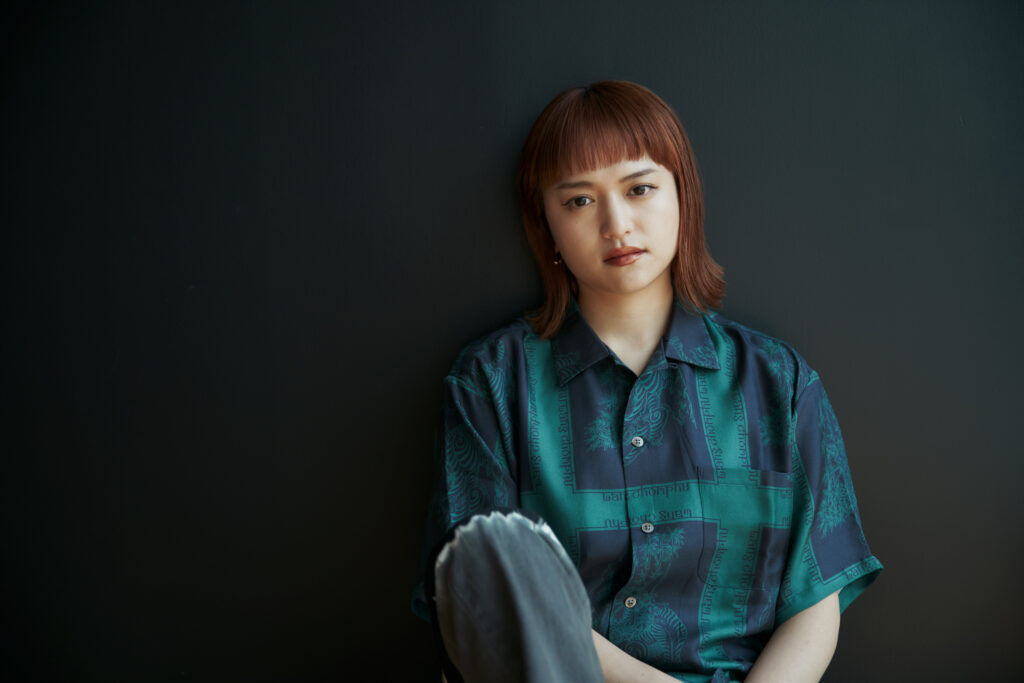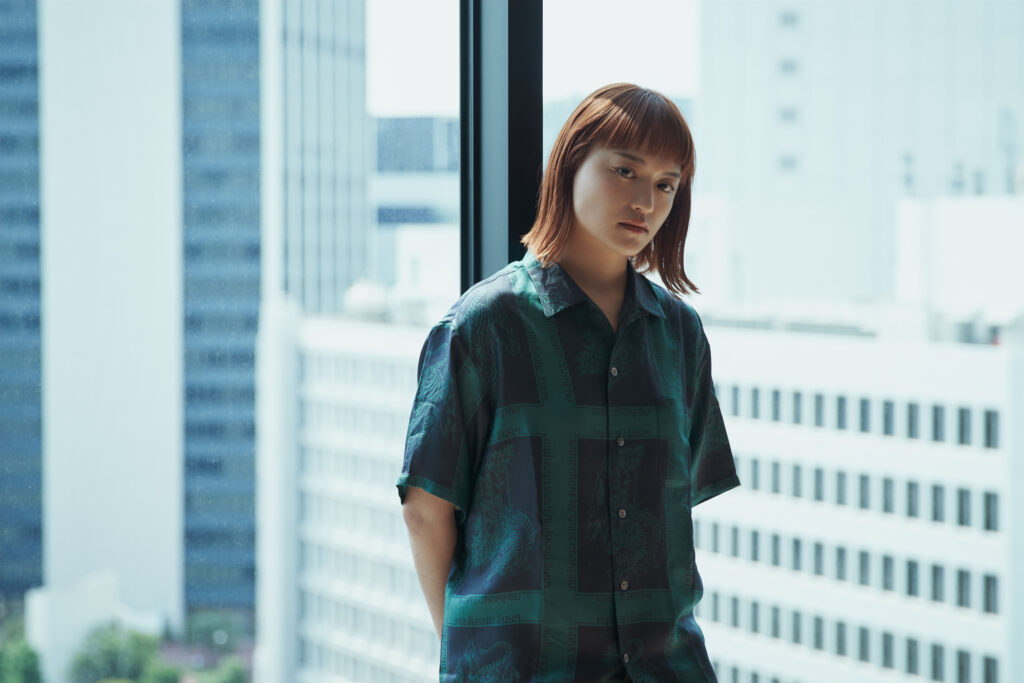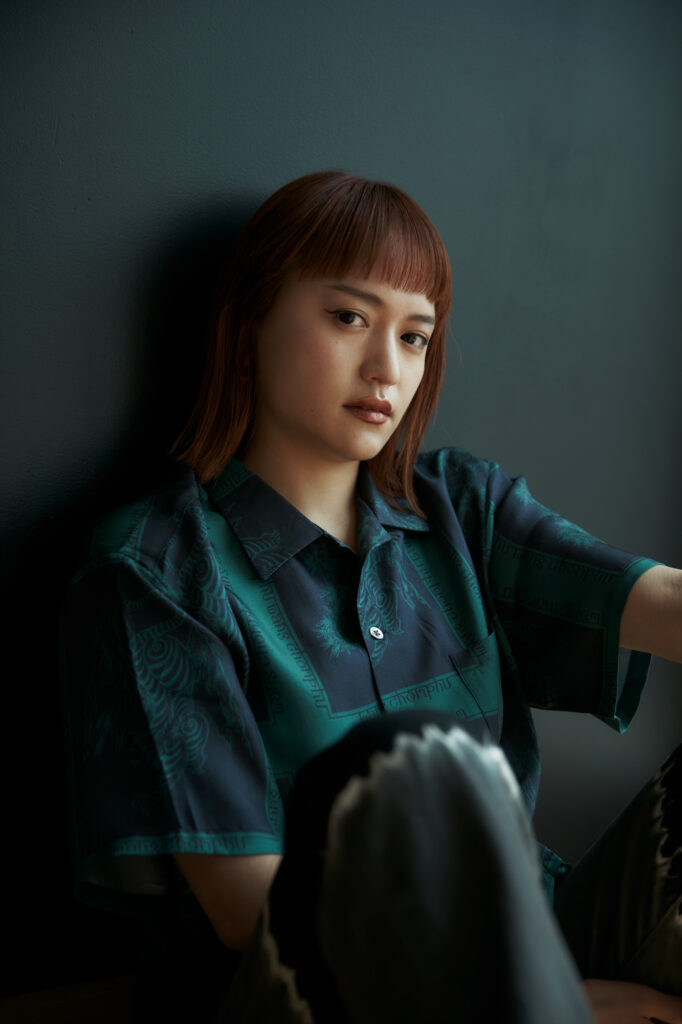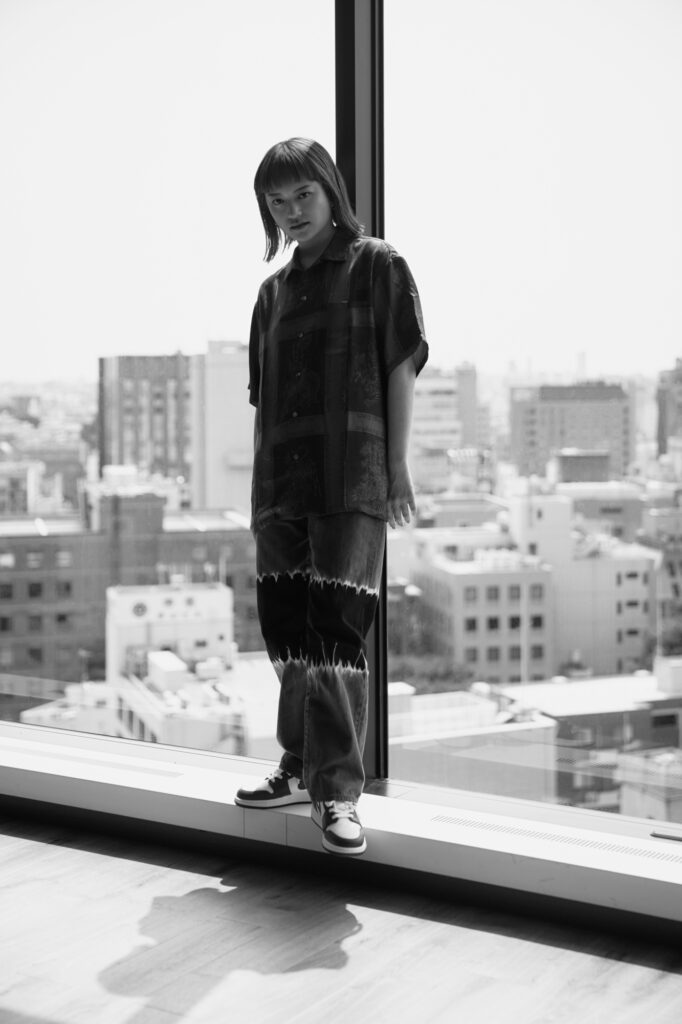iri is an artist who released her fourth album, Sparkle, last March. She announced her 2020 spring tour soon after, and each show sold out; just when she was gaining momentum, the pandemic worsened, and she had to cancel it.
For a while, she was down in the slumps because of how uncertain her situation was. However, iri had a virtual show last September and held her first Zepp tour in December. On March 24th, she released her EP, Hajimari no Hi, and went on a nationwide tour in spring. As such, she’s been thriving.
As someone who kept moving forward without ever stopping, iri had no choice but to pause due to covid. Thanks to having more time to sit with herself, iri’s creativity has been expanding, as seen in how she’s made songs that went in a new direction. She announced the upcoming tour and release of her album with the greatest hits, coming in October, to celebrate the fifth anniversary of her debut. She’s at the precipice of upping her game. What has she felt during the time between the release of her previous album to today? We asked iri about her genuine feelings.
——You put out the album Sparkle last March, and just when you were about to go on a nationwide tour, it got canceled because of covid. Could you tell us how you honestly felt?
iri: I had been preparing many things for my national tour, and I was looking forward to it. It was postponed at first, and I was sad because I couldn’t have a live show. However, I never would’ve thought I couldn’t have a live show for this long. Back then, I accepted it, like “It is what it is.”
——Your nationwide tour got postponed once, and in April, you announced its cancellation. Did you feel like, “This is serious”?
iri: Yes. My festival appearances were canceled, and so were my live shows. Until now, it was routine for me to go on tour at least once a year and perform at festivals and live shows. Since I debuted, this is the first time I hadn’t been able to perform live and have the chance to meet fans to this extent. It made me feel lonely.
——I heard you were in your hometown after the pandemic started.
iri: Yes. Once I stopped meeting people because of the stay-at-home period, I didn’t feel motivated to make music. In my case, I do get songwriting inspiration from poems or films I like, but I get inspired the most by conversations. I didn’t know what to do because I couldn’t do that. I looked for other things I could use as my creative input, and I expanded my imagination through everyday things I like, such as my plants and tropical fish. That’s how I could write songs.
——Your tour was canceled, and the stay-at-home period went on. You then had an online solo show on September 9th last year. I’m assuming this was your first show online?
iri: It was. It was like singing on a TV show because there was no audience. But still, it was a valuable experience during a time where it was hard to connect with my audience. But something was missing, as I couldn’t see their faces. So, I decided to go on tour and play at five Zepp venues all over the country in December.
——How was it playing in front of a live audience after not doing so for a long time?
iri: After doing my Zepp tour, I realized that having the audience see me perform in real life is the best. When there’s an audience, it gives me energy. I feel the most empowered when I see their facial expressions while they’re listening to my songs.
“The thing I should’ve been doing the most was making songs.”
——You released your EP, Hajimari no Hi, on March 24th this year. Did you regain your desire to make music?
iri: Rather than [regaining] that desire, it was decided for me to release an album, so it was more like “I need to make this.” I pondered what I could do in my situation. I understood that the thing I should’ve been doing the most was making songs.
But I didn’t feel like making dance music like my previous album, Sparkle, at all. I doubted people would want to listen to upbeat songs because we couldn’t go out, meet people, and go to live shows. I contemplated what sort of album I should make.
I figured people would want to listen to quite calming, tender songs—including me. So, Hajimari no Hi mostly has songwriter-ish songs rather than uptempo ones.
——In another interview, you said that you went back to your origins, which is singing and playing the guitar.
iri: I made “Hajimari no Hi,” “room,” and “Mawaru” while playing the guitar. With Sparkle, I would get the instrumentals from a producer and then write [lyrics] according to that. But with Hajimari no Hi, in part because it was during the stay-at-home period, I took the initiative. But something was lacking, so I made one danceable song, “doyu,” with TAAR.
——Compared to your previous album, Sparkle, which has danceable, catchy songs, Hajimari no Hi has calming songs that make the listener lean in. Were you curious about the listeners’ reactions when you put it out?
iri: I was curious, but I felt like I couldn’t do anything about it because those were the songs I could make at the time. Ultimately, though, I’m glad I believed in myself. When I look at the listeners’ reactions since the album’s release, I see that everyone feels the same.
——Many people were mentally affected by the pandemic, but were you alright?
iri: Well… you’d know the answer when you listen to the EP. I was feeling very down (laughs). I pondered things like farewells and life and death the whole time.
——I heard that the song “Hajimari no Hi,” which is also the title of the EP, was dedicated to someone you lost.
iri: At the beginning, I had pictured “Hajimari no Hi” as the kind of song you’d want to listen to when you graduate from school in springtime. Until that point, I had never made a song centered on a season. So, I made this one because I wanted to try.
But my imagination grew beyond the idea of a song for graduation. I started thinking about not only the concept of meeting and saying goodbye to people but also about friends I had lost and my family. Before I knew it, I was writing lyrics for those people.
——Many of the songs on this EP have the word walk in the lyrics. Is there an optimistic connotation there?
iri: As I mentioned before, during the stay-at-home period, I was apathetic; I’m the type of person who tends to think quite negatively about things. This was a year where I faced myself as an artist. I acknowledged those negative aspects but also wanted to walk forward without giving up on my dreams.
——It also includes the remixed version of “Ienai” by Pat Lok.
iri: I was talking about how I wanted to put in one remix song since I liked his music, and I asked him, expecting that he would say no. But he said yes. We’ve never met before. Once the pandemic settles down, I’d love to meet him.
Becoming one with the audience, at last
——After you put out Hajimari no Hi, your 2021 national spring tour began. You also played your Osaka show, which had been postponed.
iri: Every show was super fun. I felt like the fans and I were united. This was the most fun I had, and I discovered a lot.
Until then, I felt like there was some distance between the audience and myself. But I didn’t sense that on this tour, as it was like we had become one. It was refreshing.
——It must be hard for artists like you to stay motivated because sometimes you can play live, while you can’t in other cases.
iri: The Spring Tour 2021 was on thin ice. It was hard to tell if we could go on with it. I did have the thought that it might be canceled. Thankfully, I was able to play all shows. It would’ve been so frustrating had the tour itself been canceled. The audience and staff took proper measures for all the shows, so I’m very grateful.
“Uzu” cheered iri up, not just the listener
——You released your new song, “Uzu” in June. This song has a different vibe from the EP.
iri: I’ve been making songs for the Professional Institute of International Fashion for three years, and this is the latest song for their commercial. I wanted to give out a positive message. The idea was for it to encourage people who will fly out into the world of international fashion. But when it came time to make the song, I couldn’t be positive at all. But I made it hoping to cheer myself up; it was like I was making myself listen to it.
——In “Uzu,” the word color is a keyword.
iri: I describe individuality as color. I have a color that only I have, and so do you. I used that word so the listener could believe it.
——The music video had a sci-fi feel to it.
iri: I pictured outer space at the beginning when I made this song. I had told people I wanted to make everything about it seem spacey. The world is full of stressed-out people and those about to explode from being overwhelmed by covid. I told the director that I wanted to express that in the music video.
——Have you worked with the director of the music video, Jun Tamaki, before this?
iri: It was my first time. He used CG before in chelmico’s music video, and the theme this time was outer space, so I wanted to work with a director who uses CG. So that’s why I asked him.
——What did you think once it was done? Was it as you had expected?
iri: I was impressed by how CG could do something like that.
——I heard you’re going to release your greatest hits in October to commemorate the fifth anniversary of your debut.
iri: Yes. It’s going to be out on October 27th. I plan to play shows for my fifth anniversary in Nagoya, Osaka, Fukuoka, and Tokyo. I hope everyone can come.
——Is there anything you want to try doing?
iri: I’ve always wanted to have a simple acoustic live show, something different from usual. If the time is right, I’d love to do it in different places.
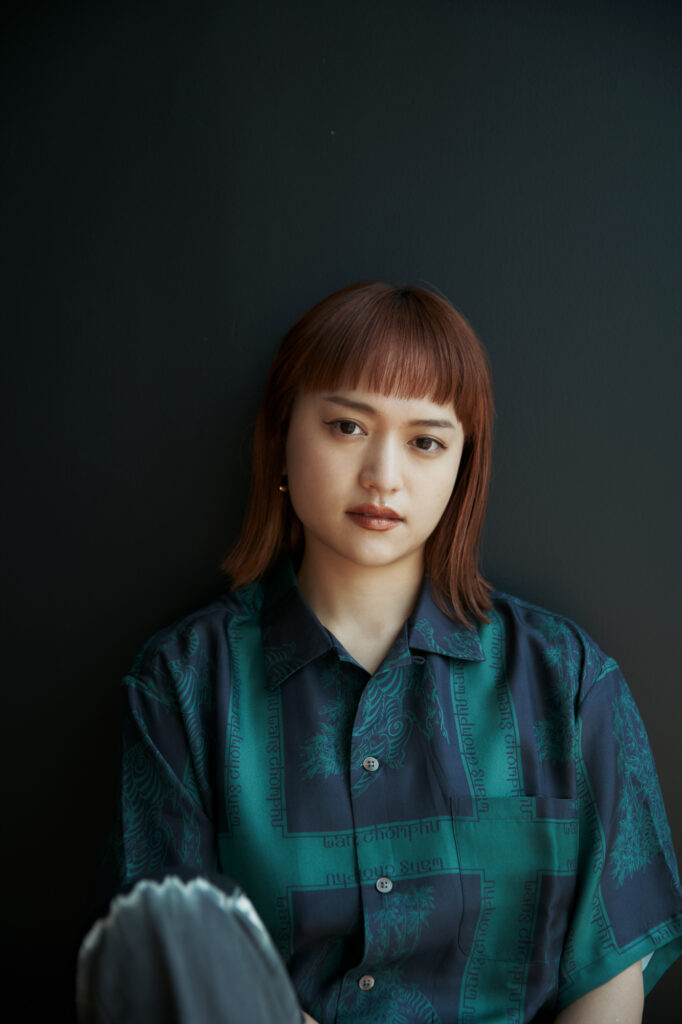
iri
iri started performing live at JAZZ BAR in her hometown and won an audition held by the fashion magazine NYLON JAPAN and Sony Music in 2014. She made her major debut in 2016 through Victor Entertainment and was ranked within iTunes Store’s Top 10 chart, and was ranked first in their Hip Hop/Rap chart. Last year, she made a song for a Nike campaign, which became a widely discussed topic. She continues to gain attention by performing at shows and parties for high fashion brands like Chloé and Valentino.
https://www.iriofficial.com
Twitter:@03iritaama
Instagram:@i.gram.iri
■iri 5th Anniversary Live “2016-2021”
Dates:
October 7th: Nagoya, DIAMOND HALL, Doors open: 6 pm/show starts: 7 pm
October 9th: Osaka, Osakajo Ongakudo, Doors open: 5 pm/show starts: 6 pm
October 17th: Fukuoka, DRUM LOGOS, Doors open: 5 pm/show starts: 6 pm
October 28th: Tokyo, Shinkiba USEN STUDIO COAST, Doors open: 6 pm/show starts: 7 pm
October 29th: Tokyo, Shinkiba USEN STUDIO COAST Doors open: 6 pm/show starts: 7 pm https://eplus.jp/sf/word/0000073512
Ticket price: advanced tickets: ¥5,500(drink not included)/at the door: ¥6,000(drink not included)
Photography Takuya Nagata(W)
Styling Masataka Hattori
Hair & Makeup Mihoko Fujiwara(LUCK HAIR)

